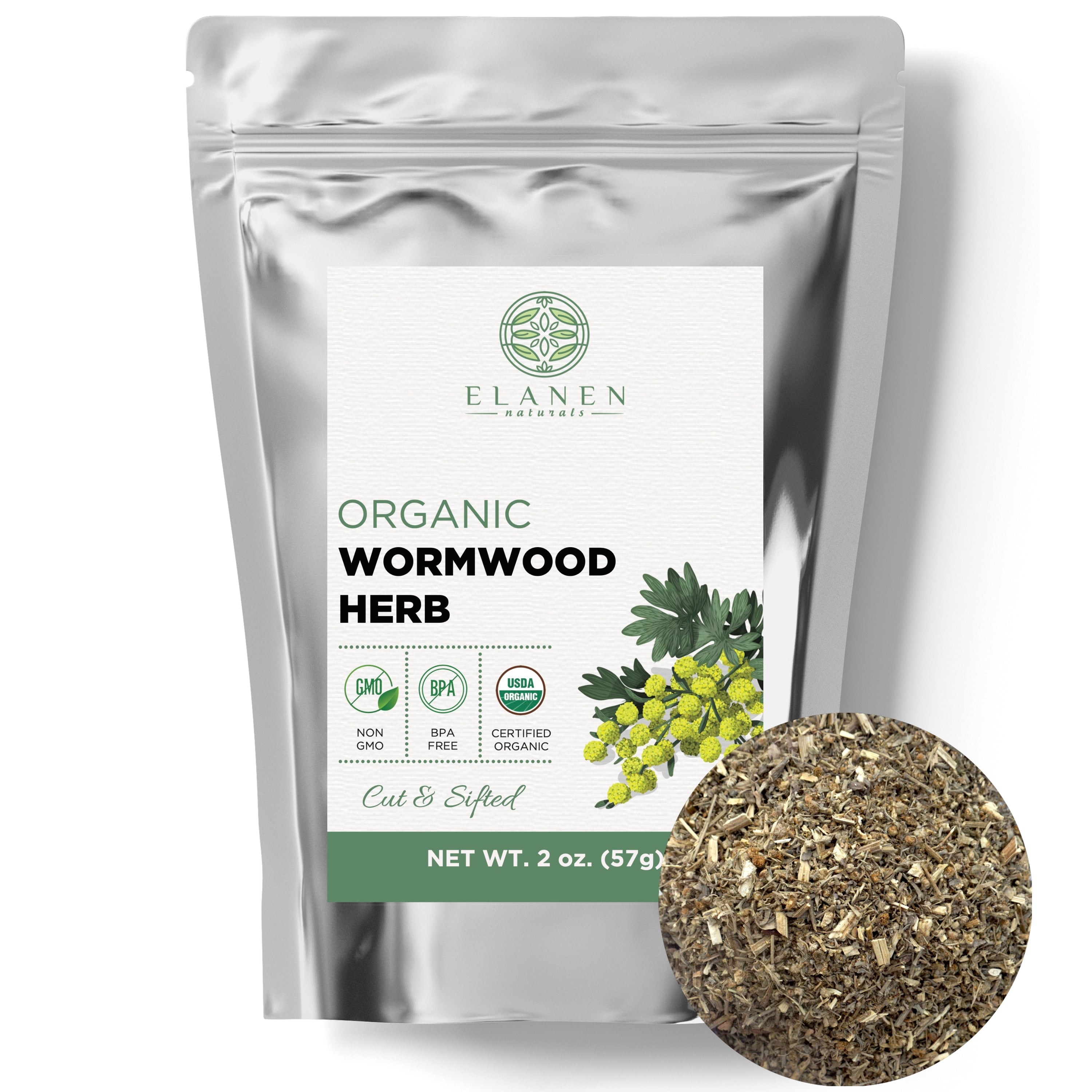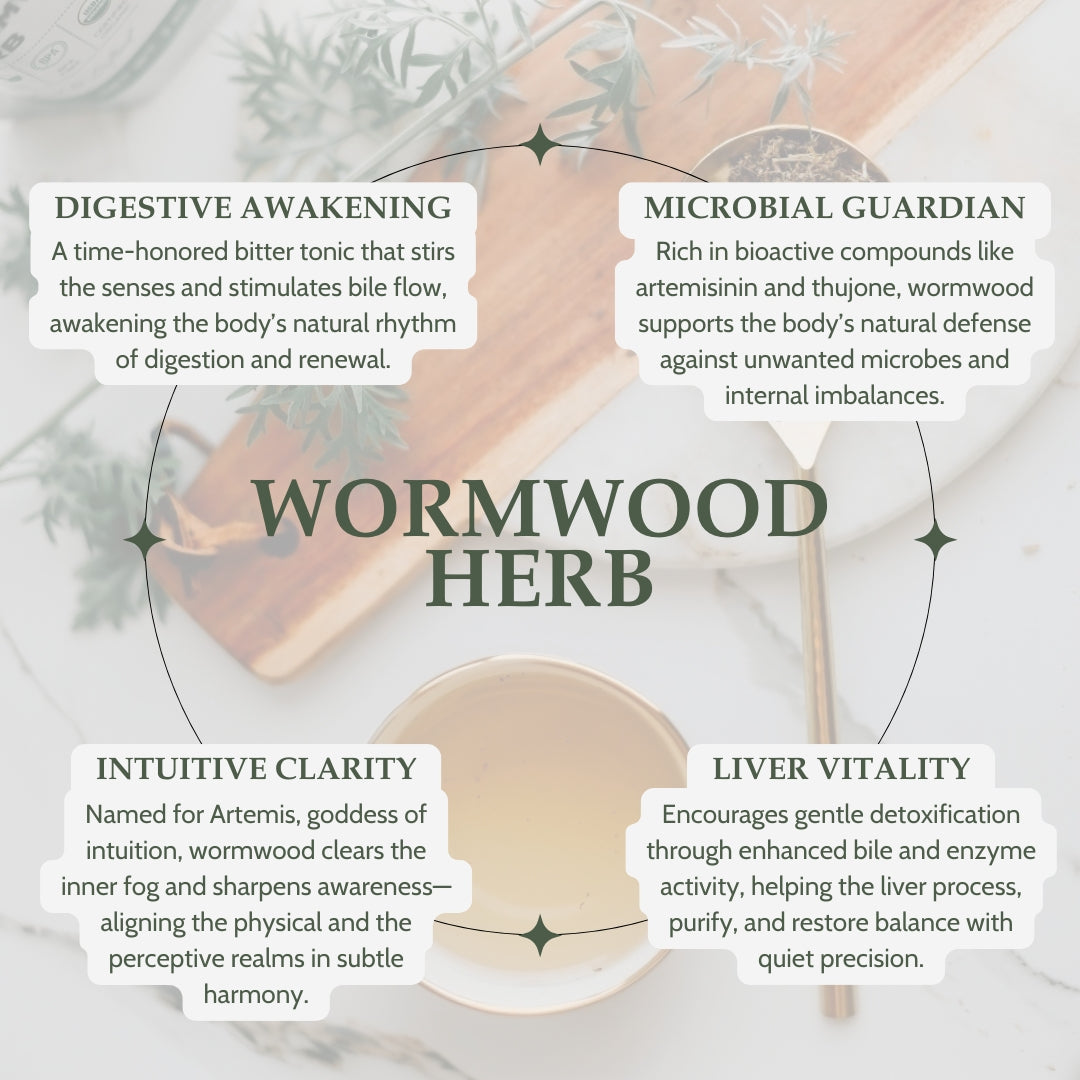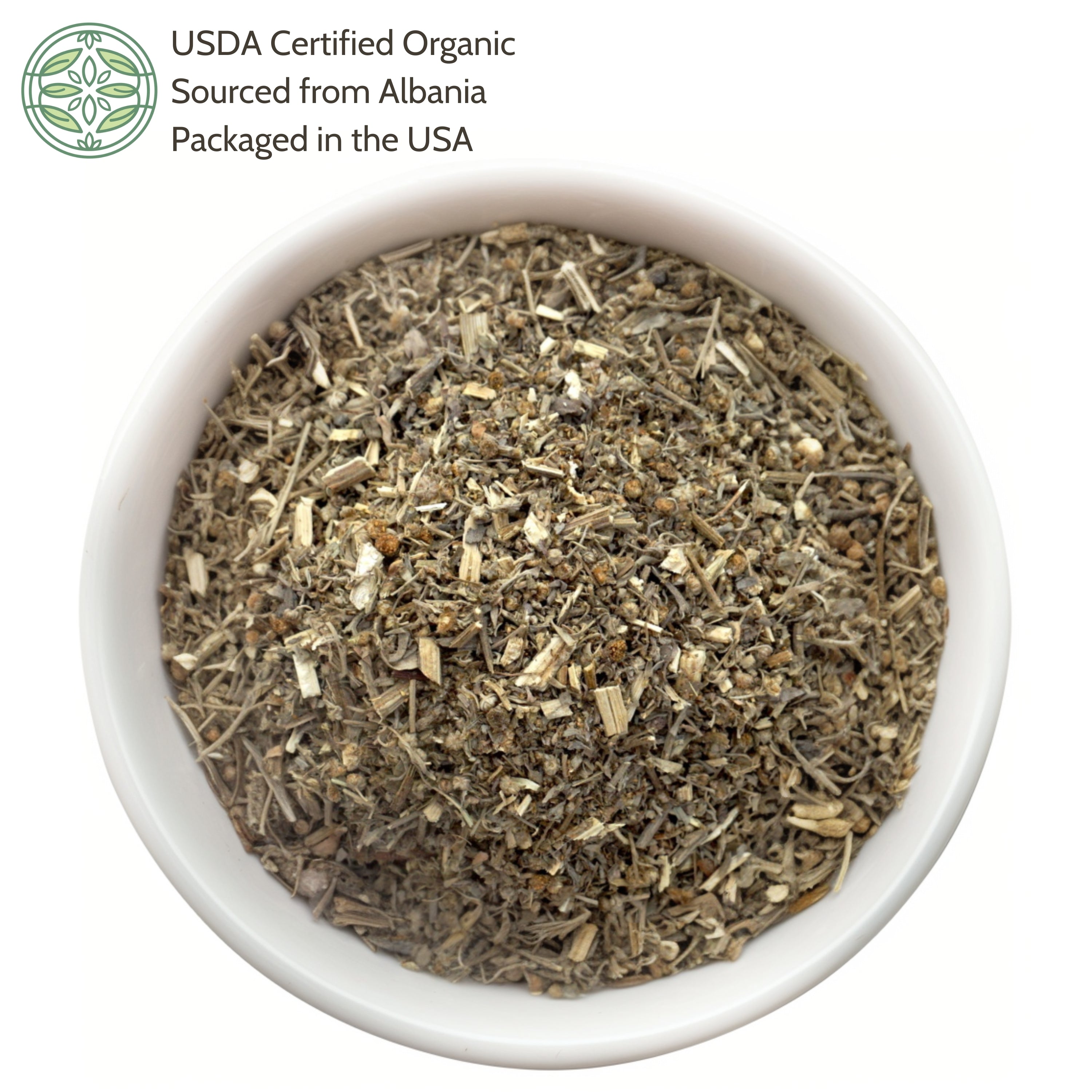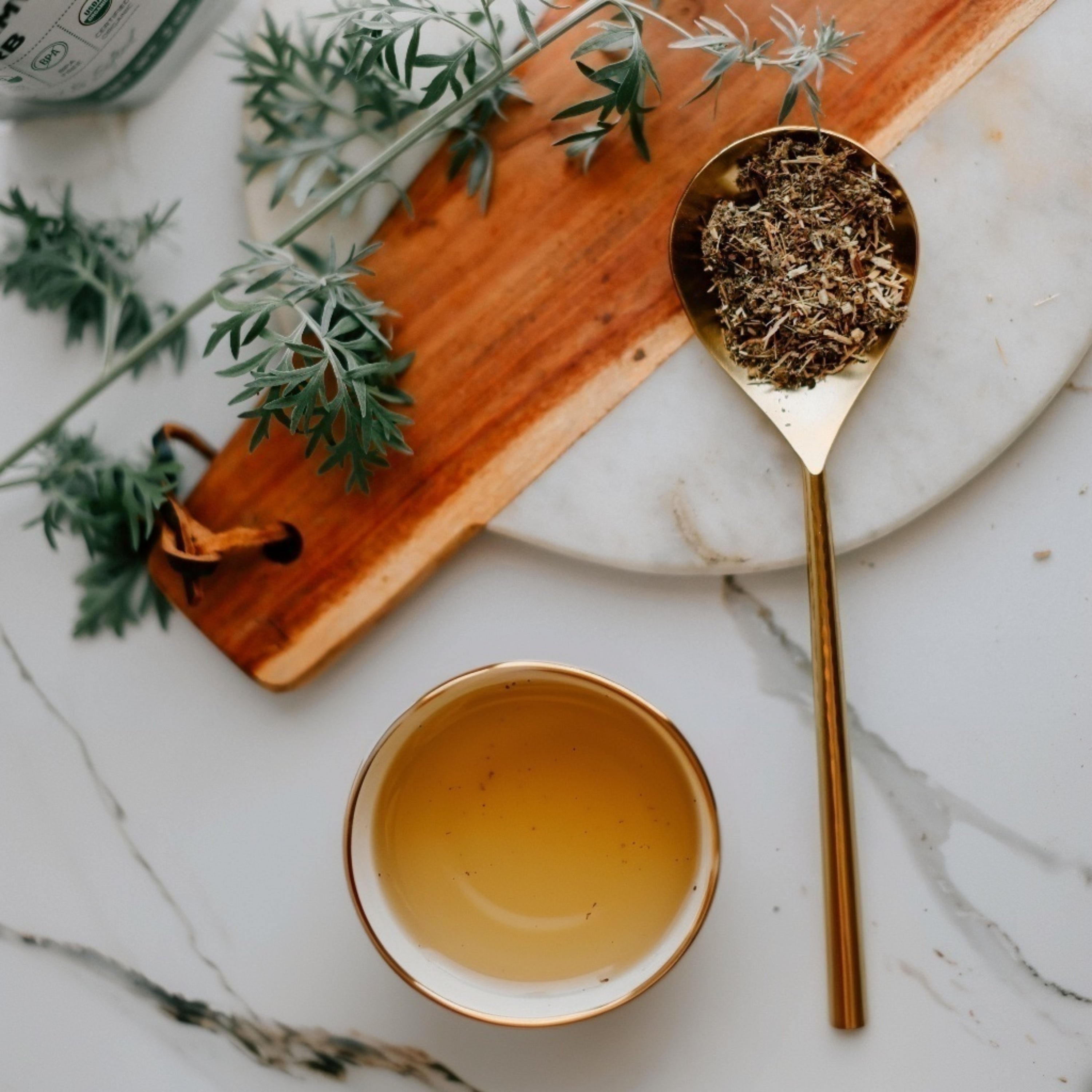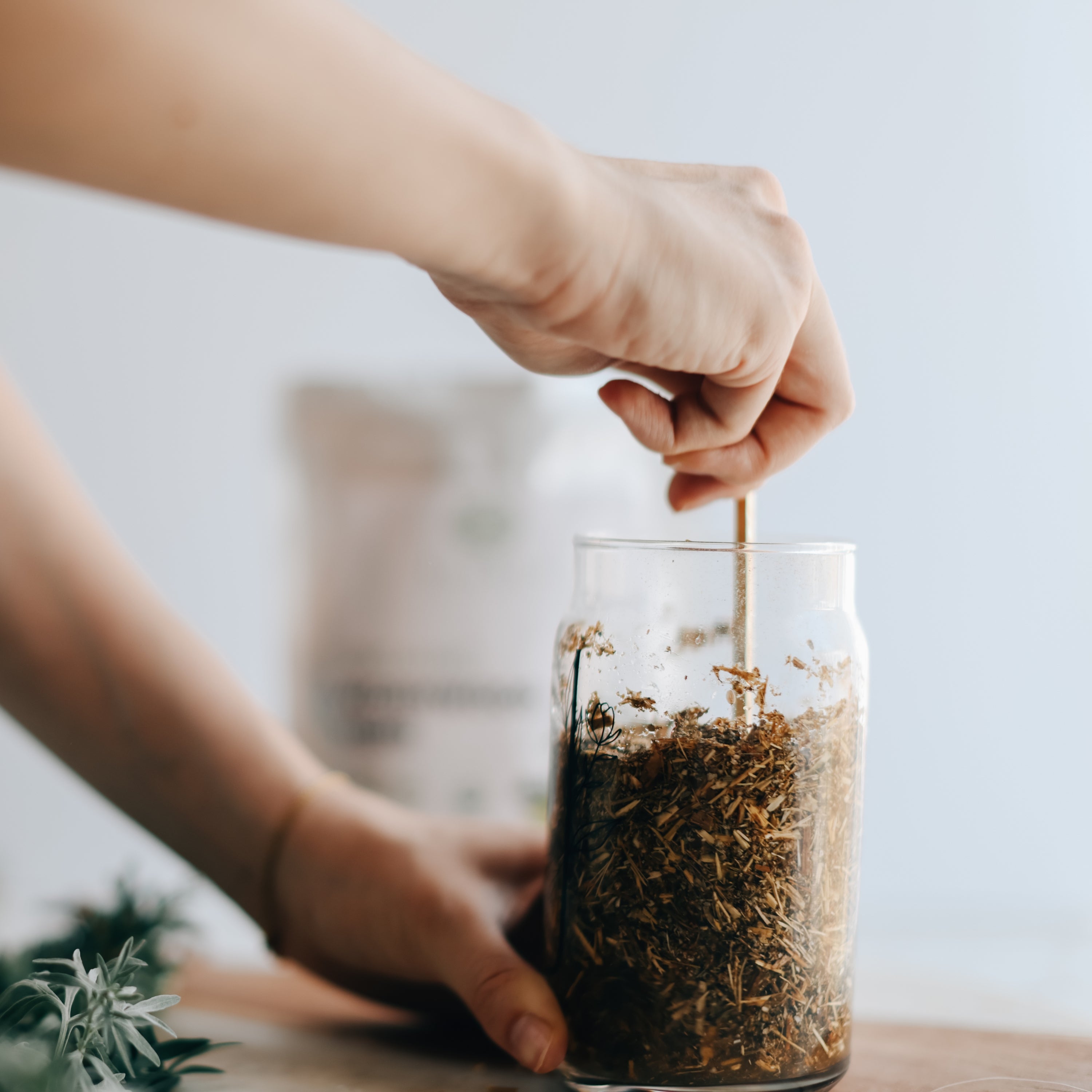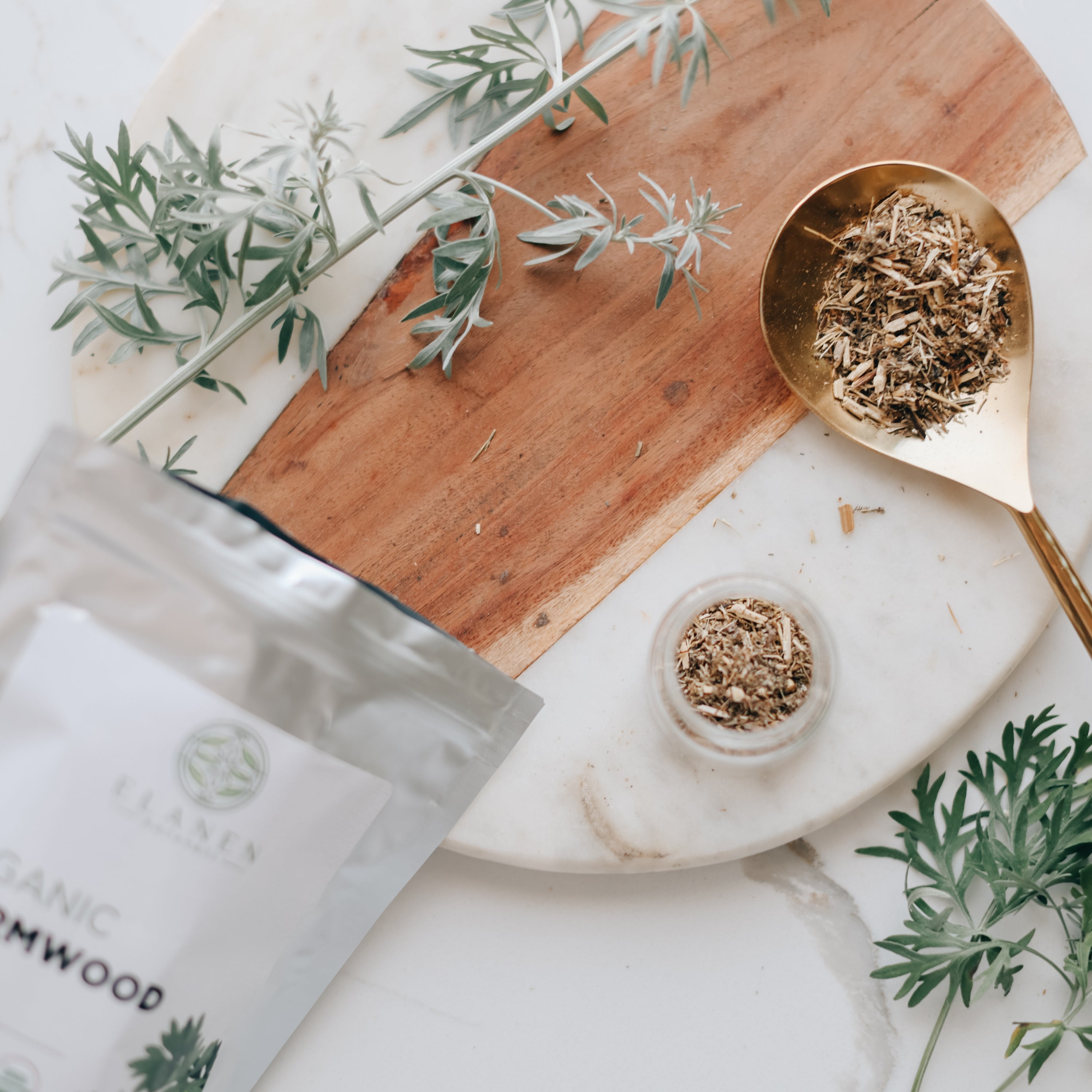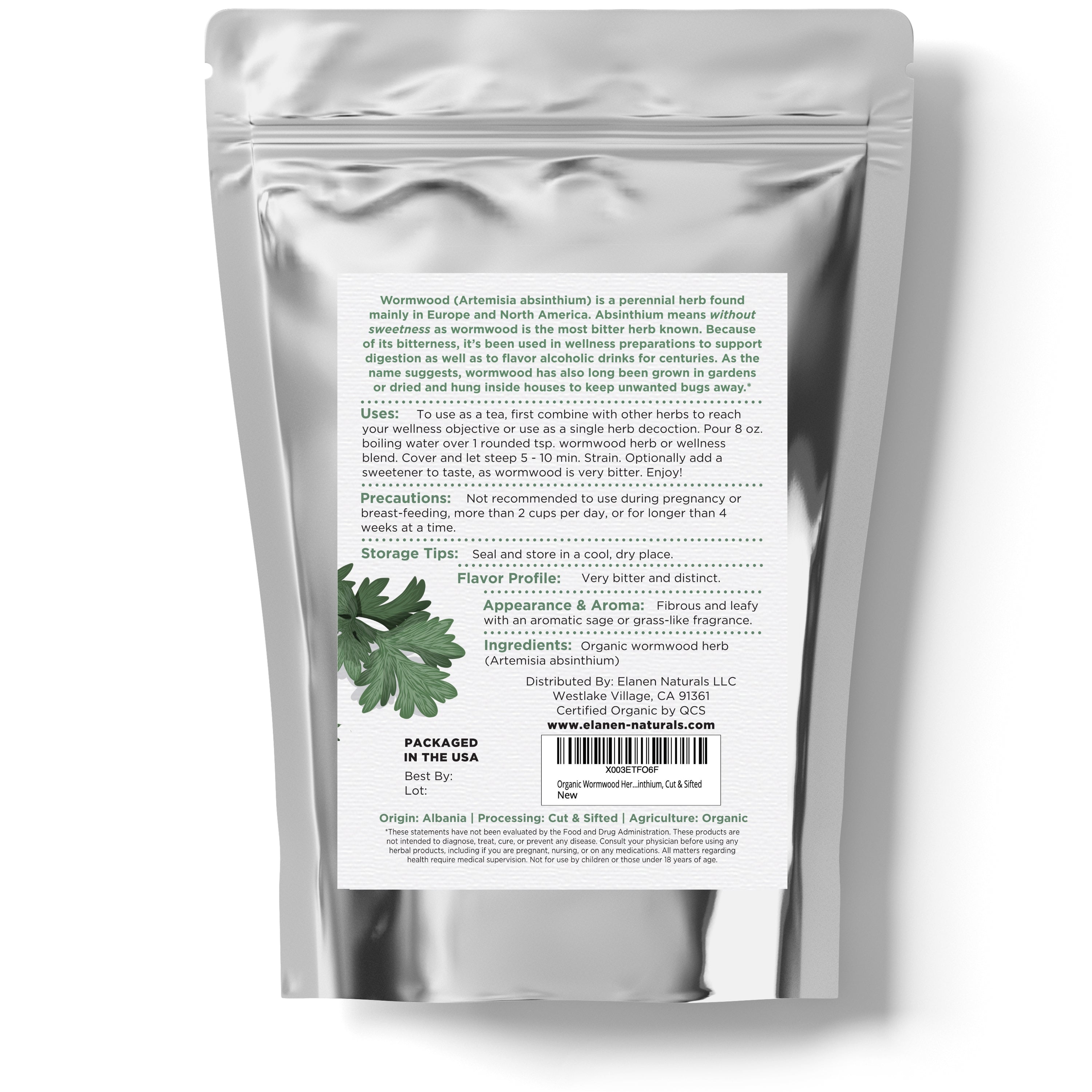Wormwood Herb, USDA Certified Organic, Cut & Sifted
Couldn't load pickup availability
-
USDA Certified Organic Wormwood: Our non-irradiated, cut and sifted Artemisia absinthium is organically grown and non-GMO, carefully sourced from certified growers. Each resealable pouch is BPA-free, keeping this time-honored herb fresh and protected.
-
Premium Quality, Potent & Vibrant: With its bold, unmistakably bitter flavor, wormwood has been cherished for centuries in herbal preparations and traditional beverages. Its distinctive taste makes it a prized addition to digestive blends, herbal bitters, and botanical tonics crafted for balance and renewal.
-
Laboratory Analyzed: Every batch of our organic wormwood is laboratory tested and organoleptically analyzed for quality and purity. Rich in natural flavonoids, lignans, and phenolic acids, this vibrant herb embodies both ancient tradition and modern herbal wisdom.
-
Albania Origin: Fibrous and leafy with a sage-like aroma and earthy complexity, our organic wormwood is cleanly and sustainably sourced from Albania, where the plant thrives in mineral-rich soil and bright mountain air.
-
Packaged with Care in California: Handled in our FDA-registered, USDA Organic, GMP & HACCP compliant facility in California, ensuring the highest standards of quality and safety.
-
Protected for Potency: Our resealable, BPA-free pouches make it easy to store and keep your wormwood fresh.
- 100% Happiness Guarantee: If you’re not completely satisfied, simply contact us within 60 days for a full refund. As a small family-owned business, we treat our customers like family too.
Wormwood (Artemisia absinthium) is a hardy perennial herb, flourishing across Europe and North America. Its very name, absinthium, translates to “without sweetness,” a nod to its distinctly bitter flavor. This bitterness has long been celebrated in herbal traditions, prized for its ability to stimulate digestion, awaken the senses, and promote internal balance. Beyond taste, its silvery-green, feathery leaves carry aromatic compounds that engage the senses, connecting the drinker or user to the plant’s subtle, restorative energy.
For centuries, wormwood has played a dual role in both culinary and medicinal traditions. While best known today as a key ingredient in absinthe, vermouth, and herbal bitters, it was historically added to meads, beers, and other fermented beverages to add depth of flavor and natural preservation. Its bold bitterness was viewed as a catalyst for digestive strength and metabolic clarity, reflecting the herb’s long-standing reputation as a tonic for internal harmony.
Wormwood was also valued outside the kitchen. In homes across Europe, leaves were dried and hung in doorways or windows to ward off insects, bringing protection and purification to living spaces. This practical use mirrors its symbolic role in folk traditions, where wormwood was thought to cleanse not only the body but the environment, supporting both physical and energetic balance. Its presence in gardens and homes made it a familiar ally, bridging the natural and the mystical.
Today, wormwood continues to occupy a space between tradition and modern herbal practice. Beyond its use in spirits and bitters, herbalists turn to it as a digestive aid, liver support, and gentle purifier. Compounds like thujone and artemisinin have been studied for their bioactive properties, reinforcing centuries of observational knowledge with modern science. Whether brewed as a tea, infused in tinctures, or included in botanical blends, wormwood offers a sensory experience that engages the palate, the body, and the imagination, carrying forward its enduring legacy as a plant of both mystery and medicinal wisdom.*

